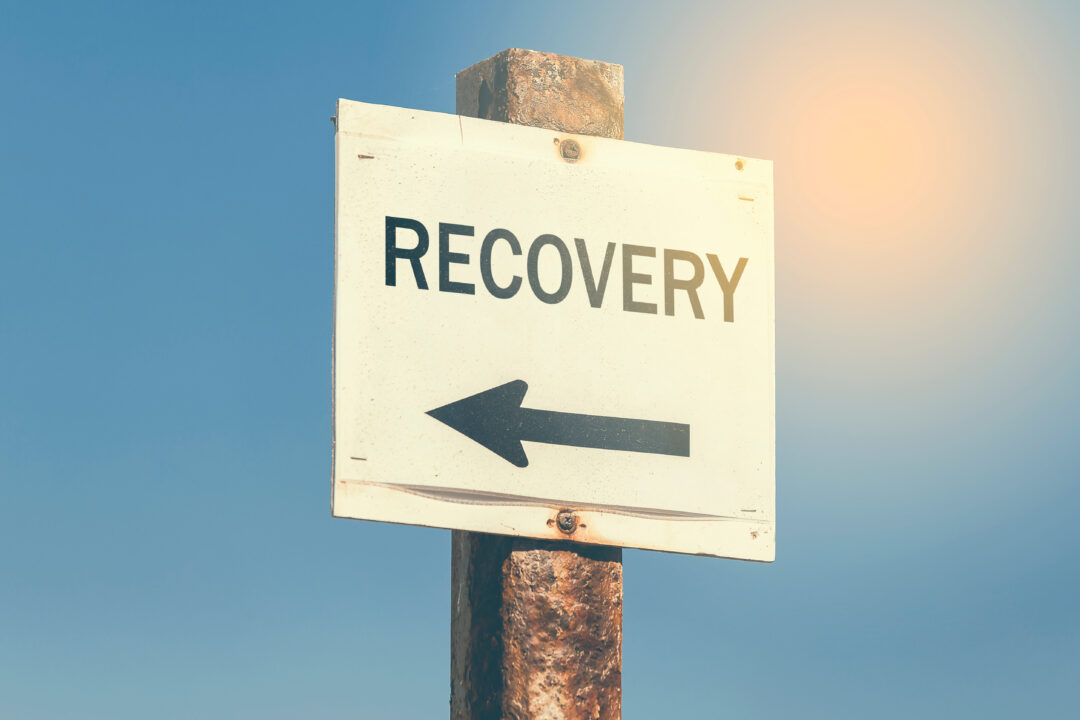Addiction is a complex condition that can significantly impact individuals, families, and communities. While overcoming addiction is a difficult feat, recovery is not only possible, but it’s also a journey of immense personal strength and growth. However, the path forward after initial treatment can feel uncertain and overwhelming. This article introduces a blueprint to guide individuals through the various stages of recovery and empower them to build a fulfilling life beyond addiction.
This blueprint will not simply offer a one-size-fits-all solution. Instead, it will guide you through understanding the different phases of recovery, exploring available support systems, and building a personalized plan that addresses your unique needs and goals. By taking an active role in shaping your recovery journey, you gain the power to create a sustainable path toward long-term well-being and a fulfilling future.
Table of Contents
Understanding Recovery
Recovery from addiction is often seen as a destination, a final point where one has successfully overcome their dependency. However, in reality, recovery is an ongoing process, a continuous journey that requires constant attention and care. It’s not just about abstaining from a substance or behavior; it’s about rebuilding and reinventing one’s life in a way that sustains and nurtures sobriety.
At its core, recovery involves a profound transformation of how one deals with life’s challenges, stress, and emotions without resorting to previous harmful behaviors. It’s about developing new coping mechanisms, healthier habits, and a resilient mindset that can withstand the ups and downs of life. For many, this journey includes rediscovering or redefining their identity, values, and purpose beyond their addiction.
A crucial aspect of understanding recovery is recognizing its non-linear nature. Progress can sometimes feel slow or even stalled, and setbacks can occur. It’s important to view these not as failures but as part of the learning and growth process. Each challenge faced and overcome strengthens one’s resolve and skills in maintaining sobriety.
Organizations like jacksonhouserehab.com offer valuable insights and support for individuals navigating the complexities of recovery. They emphasize that recovery is not a solo endeavor, but a path best walked with support from professionals, loved ones, and a community that understands the journey.
Pillars of a Recovery Blueprint

The journey toward a fulfilling life after addiction rests on several key areas of focus. These areas are interconnected, each playing a vital role in supporting and reinforcing the others, ensuring a well-rounded approach to recovery.
- Physical Health: The first step in building a solid recovery blueprint is prioritizing physical health. This includes adopting a healthy diet, engaging in regular physical activity, and getting enough sleep. These actions help repair the body from the damage of addiction and provide the energy and strength needed for the challenges of daily life.
- Mental Health: The second pillar involves taking care of one’s mental health. This may include therapy, support groups, and, if necessary, medication. Addressing mental health is crucial for understanding and managing the thoughts and behaviors associated with addiction.
- Emotional Well-being: Maintaining emotional well-being is another critical aspect. This involves learning to manage stress, express emotions in healthy ways, and develop resilience. Techniques such as mindfulness and meditation can be particularly helpful.
- Social Connections: Recovery is often more successful with a strong support network. This pillar focuses on building and maintaining healthy relationships, seeking out supportive communities, and sometimes distancing oneself from harmful influences.
- Personal Development: Finally, focusing on personal development gives direction and purpose to life after addiction. Setting and achieving personal goals, whether related to career, education, or personal interests, can provide a sense of accomplishment and satisfaction.
Together, these pillars form a comprehensive approach to recovery. Each one supports the others, creating a balanced and holistic path forward.
Setting Realistic Goals
In the recovery process, setting realistic goals is crucial. It provides direction and a sense of purpose, helping individuals focus on positive changes and growth. To ensure these goals are effective and achievable, one might use the SMART framework, which stands for Specific, Measurable, Achievable, Relevant, and Time-bound.
- Specific: Goals should be clear and specific to avoid confusion about what you’re trying to achieve. For example, rather than saying, ‘I want to be healthier,’ a specific goal would be, ‘I will walk for 30 minutes every day.’
- Measurable: Having measurable goals allows you to track your progress. If your goal is to improve your relationships, a measurable aspect could be, ‘I will have dinner with family members twice a week.’
- Achievable: It’s important that goals are realistic and attainable. Setting the bar too high can lead to disappointment. If you’re interested in further education, an achievable goal might be enrolling in a single evening class rather than a full course load.
- Relevant: Your goals should be relevant to your recovery and overall life objectives. For instance, if improving mental health is a priority, a relevant goal could be practicing mindfulness meditation for 10 minutes each day.
- Time-bound: Goals need a deadline to keep you focused. Instead of an open-ended goal, you might say, ‘I will complete a 5k run in six months.’
By setting SMART goals, individuals in recovery can enjoy small victories, which are incredibly motivating. These achievements, no matter how small, contribute to a larger sense of progress and accomplishment.
Developing a Support System
A robust support network can come from various sources, each bringing unique forms of support.
Family and friends often form the core of one’s support system. These are the people who know you well and care about your well-being. It’s important, however, to communicate openly with them about your needs and boundaries. Sometimes, family and friends might need guidance on how best to support you, which could involve attending family therapy sessions or learning more about the nature of addiction and recovery.
Mentors or sponsors, particularly those who have personal experience with recovery, can offer invaluable guidance and support. They can share their own experiences, offer advice, and provide a listening ear during difficult times. Their journey through recovery can serve as a source of inspiration and a reminder that long-term sobriety is achievable.
Professional counselors or therapists play a critical role in addressing the psychological aspects of addiction. They offer a safe space to explore underlying issues, develop coping strategies, and work through the emotional ups and downs of recovery. Regular sessions with a mental health professional can significantly bolster one’s ability to maintain sobriety.
Support groups are another essential component of a strong support system. Groups such as Alcoholics Anonymous or Narcotics Anonymous offer a sense of community and shared experience that can be incredibly comforting. Hearing others share their stories and challenges can help reduce feelings of isolation and provide practical insights into managing recovery.
Finally, engaging with community resources, such as local recovery centers or wellness programs, can expand your support network. These resources often offer workshops, activities, and opportunities to meet others who are on similar paths, broadening your circle of support.
Coping Strategies and Relapse Prevention
In navigating life after addiction, adopting effective coping strategies and preparing for relapse prevention are crucial steps.
- Coping Strategies
Developing a set of personalized coping mechanisms is essential for managing the stresses and triggers that can arise. For instance, practicing mindfulness can help maintain a present-moment awareness, reducing the impact of stressors. Engaging in regular physical activity, such as walking or yoga, boosts physical health, helps in releasing tension, and improves mood.
Another useful approach is to cultivate hobbies or activities that provide a sense of joy and fulfillment, redirecting focus away from potential triggers. Whether it’s painting, gardening, or playing a musical instrument, these activities offer therapeutic benefits and a constructive outlet for expressing creativity and emotions.
- Relapse Prevention
Recognizing that relapse can be a part of the recovery journey is important. Preparing for this possibility involves creating a detailed plan that outlines the steps to take when faced with high-risk situations or early warning signs of relapse. This plan might include reaching out to a trusted friend, family member, or counselor for support, or attending an emergency support group meeting.
One effective technique is to identify specific triggers and plan healthy responses in advance. For example, if social gatherings are a trigger, planning to attend these events with a sober friend or having an exit strategy can help in maintaining sobriety. Similarly, keeping a journal to document thoughts, feelings, and coping strategies that work can serve as a valuable resource during challenging times.
Moreover, educating oneself about the nature of addiction and the common patterns leading to relapse can empower an individual with knowledge and awareness, making it easier to navigate difficult periods.
Integrating into Society
Reintegrating into society after overcoming addiction presents its own set of challenges and opportunities. This phase of the recovery journey involves navigating social, professional, and educational landscapes with a new perspective and set of goals.
- Employment: It’s beneficial to start with positions that match current skills and experience levels while also considering the environment’s potential impact on recovery. Some may find it helpful to seek employment opportunities through organizations that support individuals in recovery, as they are likely to offer a more supportive workplace culture.
- Education: For many, returning to education or pursuing new learning opportunities can play a key role in personal development and career advancement. Whether it’s completing a high school diploma, enrolling in college courses, or attending vocational training, education can boost self-esteem and open doors to new possibilities.
- Social Activities: Engaging in community events, joining clubs or groups aligned with personal interests, and volunteering are excellent ways to connect with others and build a positive social network.
It’s normal to encounter obstacles along the way. Facing stigma, rebuilding trust in relationships, and managing the stress of new responsibilities can be daunting. However, utilizing the coping strategies and support systems established in earlier stages of recovery can help in overcoming these hurdles. Open communication, patience, and self-compassion are key in navigating these complexities.
Final Words
The journey of recovery is personal and unique to each individual. It’s important to tailor the recovery blueprint to fit personal needs, circumstances, and aspirations. Embrace the process, celebrate the milestones, and be patient with yourself through the challenges. With determination, support, and a clear plan, a life of purpose and joy post-addiction is not just a possibility but an achievable reality.






